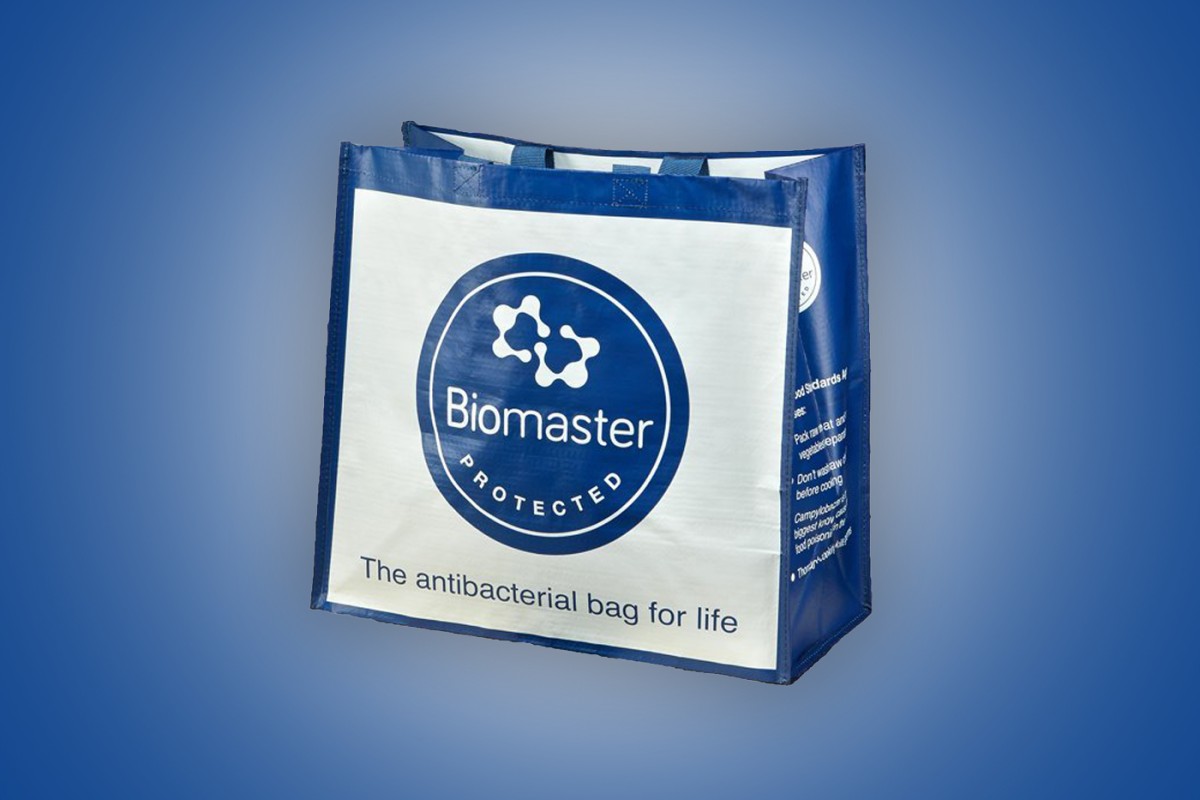How to Avoid Food Poisoning From Your Bag for Life

In recent news articles the FSA has advised that the outer packaging for raw meat, poultry and fish can be contaminated with bacteria such as Campylobacter, Salmonella and E. coli, which can all be a source of food poisoning illnesses.
As such, there is a heightened risk that when transporting food home these bacteria could be spread from packaging to the rest of your groceries and the lining of your Bag for Life.
Addmaster’s CEO & Founder Paul Morris has been speaking to the media on the best ways to reduce this risk.
Paul highlighted with appearances on BBC Radio stations for Stoke, Shropshire and Cambridgeshire, how important it is to practice good hygiene when handling meat and poultry packaging, making your sure Bag for Life is kept clean or even consider using a Biomaster antibacterial Bag for Life.
The Biomaster protected Bag for Life features an antimicrobial lining, meaning the bacteria cannot survive on the surface, making your bag safe to re-use for multiple trips, regardless of how often you use it.
Major supermarkets such as Marks & Spencer and Morrisons now offer Biomaster protected bags in a range of styles including jute, pouch, freezer and cool bags, with more in discussions.
Biomaster technology works extremely effectively at low doses, which means only a fraction of the manufacturing cost is needed to incorporate it into the lining of the bag, providing long-lasting product protection for a cost effective end product.
FSA guidelines for safer Bag for Life use:
1. Use separate bags for different types of groceries
Packaging from raw meat, poultry & fish, as well as soil from loose vegetables can carry bacteria which can transfer to other produce such as ready to eat food and non-food items.
2. Choose the right bag for your needs
Whilst heavy duty woven bags can be ideal for larger shopping trips, carrying a small pouch bag can be handy for smaller shops and use a cool bag to keep frozen or chilled food at a safe temperature for longer.
3. Label your bags for specific use
Whilst some supermarkets provide a label to separate your carrier bags for meat, ready-to-eat and non-food, you can also colour code your bags to make sure you don’t mix them up.
4. Use a cool bag or a freezer bag in warmer weather
Frozen or chilled food can start to spoil quicker if it’s not kept at a safe temperature, so investing in a cool bag can help to keep your shopping chilled on the journey home.
5. Check for leaks and spillages
Leakage from meat packaging, eggs or loose soil from vegetables can all harbour bacteria so it’s important to clean up any spillages as soon as possible. If the soiling is really bad then it’s best to replace it.
6. Wash your cotton bags
Cotton or fabric bags need to be washed at a high temperature (above 70°C) to kill any harmful bugs. You can also use the Biomaster Hygiene Control Fabric Spray, which has been proven to be effective against Campylobacter, E. coli, Salmonella and other harmful bacteria.
7. Replace any damaged bags
If your reusable bag becomes damaged over time then your supermarket should replace it free of charge, depending on their own policy.
← Back to blog
